Welcoming a tiny human into the world is magical but let’s be honest – cooking a gourmet meal while juggling a newborn isn’t exactly a piece of cake. New parents often find themselves choosing between a decent meal and precious sleep with only one hand free to feed themselves.
That’s where frozen meals come to the rescue. These convenient culinary lifesavers have evolved far beyond the TV dinners of yesteryear. Today’s frozen meals offer nutritious ready-to-eat options that can help sleep-deprived parents maintain their sanity and satisfy their hunger without compromising on taste or health. Whether it’s a midnight feeding session or a quick lunch between diaper changes frozen meals can be the difference between eating well and not eating at all.
Table of Contents
ToggleWhy Frozen Meals Are Essential for New Parents
New parents face significant time constraints with round-the-clock feedings, diaper changes and minimal sleep. Research shows parents spend an average of 6-8 hours daily on newborn care tasks during the first months.
Managing nutritious meals becomes challenging when caring for a newborn:
- Sleep deprivation limits energy for meal preparation
- Irregular feeding schedules disrupt normal cooking routines
- One-handed eating becomes common while holding the baby
- Grocery shopping takes extra planning with a newborn
- Kitchen cleanup adds another task to an already full day
A freezer stocked with prepared meals provides key advantages:
- Ready in 5-10 minutes with minimal preparation required
- Balanced nutrition without measuring ingredients
- Single-handed eating options in portable containers
- Zero food waste from spoiled fresh ingredients
- Consistent portion sizes for maintaining health
| Meal Type | Prep Time | Cleanup Time | Total Time Saved |
|---|---|---|---|
| Fresh Cooked | 45-60 min | 20-30 min | 0 min |
| Frozen Meal | 5-10 min | 2-5 min | 60-75 min |
Frozen meals eliminate daily decisions about dinner planning. Parents save mental energy by avoiding recipe selection, ingredient shopping and monitoring cooking times. The preserved nutrients in flash-frozen meals match those of fresh-cooked alternatives according to FDA research.
- Gluten-free entrees for food sensitivities
- Plant-based meals for vegetarian parents
- Low-sodium selections for nursing mothers
- High-protein options for postpartum recovery
- Portion-controlled servings for weight management
Best Types of Frozen Meals for Postpartum Recovery
Frozen meals for postpartum recovery focus on nutrient-dense ingredients that support healing and milk production. These specially curated meals combine protein, fiber, vitamins and minerals essential for maternal health.
Protein-Rich Options
Protein-based frozen meals support tissue repair and maintain energy levels during postpartum recovery. Ready-made options include lean chicken breast bowls with 25-30g protein per serving, salmon fillets packed with omega-3 fatty acids and grass-fed beef entrees containing 20-25g protein. Plant-based alternatives feature quinoa black bean bowls offering 15-20g protein, lentil curry dishes and tempeh stir-fries. Popular brands offer portion-controlled servings with lean proteins paired with complex carbohydrates:
| Meal Type | Protein Content | Prep Time |
|---|---|---|
| Chicken Bowl | 28g | 5 mins |
| Salmon Fillet | 24g | 7 mins |
| Lentil Curry | 16g | 6 mins |
Nutrient-Dense Vegetables and Grains
| Meal Components | Key Nutrients | Benefits |
|---|---|---|
| Brown Rice & Kale | Iron, Fiber | Energy, Digestion |
| Quinoa & Broccoli | Protein, Vitamin C | Healing, Immunity |
| Sweet Potato & Spinach | Vitamin A, Iron | Milk Production |
How to Stock Your Freezer Before Baby Arrives
Preparing a freezer stash requires strategic planning 4-6 weeks before the due date. A well-organized freezer system ensures easy access to nutritious meals during the initial postpartum period.
Meal Planning Strategy
Start by creating a diverse meal rotation with 15-20 different options. Include breakfast items such as egg burritos or overnight oats in portioned containers. Stock lunch choices like individual soup portions or grain bowls for quick reheating. Plan dinner entrees including lasagna, casseroles or stir-fry combinations divided into 2-3 serving portions.
Focus on foods rich in iron, protein and complex carbohydrates:
- Proteins: Grilled chicken strips, meatballs, seasoned fish fillets
- Grains: Brown rice, quinoa, whole wheat pasta
- Vegetables: Roasted vegetable medleys, steamed broccoli, sweet potato chunks
- One-handed snacks: Energy bites, muffins, granola bars
Storage Tips and Organization
Label each container with:
- Meal name
- Date prepared
- Heating instructions
- Number of servings
Maximize freezer space through proper organization:
- Use square containers to optimize storage
- Stack similar items together
- Place frequently accessed items at the front
- Create zones for breakfast, lunch, dinner items
| Food Type | Maximum Storage Time |
|---|---|
| Cooked meats | 3 months |
| Soups/stews | 4 months |
| Casseroles | 3 months |
| Baked goods | 2 months |
Top Store-Bought Frozen Meals for Parents
Store-bought frozen meals provide convenient nutrition options for new parents adjusting to life with a newborn. These ready-to-heat meals deliver essential nutrients while minimizing preparation time during busy parenting schedules.
Healthy Prepared Meal Brands
Leading frozen meal brands focus on nutritious ingredients with minimal preservatives. Evol Foods offers organic protein bowls containing 15-20g of protein per serving alongside whole grains vegetables. Amy’s Kitchen produces dairy-free gluten-free options with plant-based proteins ranging from 10-15g per meal. Healthy Choice Power Bowls feature superfoods like quinoa kale delivering 18-25g of protein per serving. Saffron Road creates globally-inspired meals using antibiotic-free meats sustainable seafood containing 14-22g of protein. Performance Kitchen crafts meals specifically for postpartum nutrition containing essential nutrients like iron zinc omega-3s.
Budget-Friendly Options
Affordable frozen meals maintain quality while keeping costs low. Trader Joe’s frozen entrées cost $3-5 per serving featuring options like vegetable fried rice chicken tikka masala veggie enchiladas. Birds Eye Voila! meals provide complete protein vegetable grain combinations for $4-6 per serving. Lean Cuisine offers portion-controlled meals between $2-4 containing 10-15g protein per serving. Store brand frozen meals from retailers like Target Kroger cost 25-40% less than name brands while matching nutritional content. Buying multipacks or shopping sales reduces costs by 15-30% making convenient nutrition more accessible for new parents.
Make-Ahead Freezer Meals to Prepare
Creating a stockpile of homemade freezer meals before the baby arrives enables new parents to enjoy nutritious, home-cooked food during the postpartum period. Planning and preparing these meals 4-6 weeks before the due date ensures a well-stocked freezer.
One-Handed Meal Ideas
Easy-to-eat meals accommodate the reality of holding a baby while eating. Burritos wrapped in foil provide a convenient grip-and-eat option. Mini quiches baked in muffin tins offer protein-rich bites. Calzones filled with vegetables cheese freeze well heat quickly. Energy balls made from dates nuts oats supply quick nutrition. Handheld pot pies contain complete meals in portable form. Individual lasagna rolls eliminate the need for cutting. Breakfast sandwiches wrapped in parchment paper maintain freshness. Mason jar soups include handles for steady gripping. Stuffed sweet potatoes reheat as complete single-serve portions.
Batch Cooking Basics
Batch cooking multiplies recipe yields to create multiple meals efficiently. Doubling or tripling recipes maximizes cooking time investment. Glass containers sized for 2-3 servings prevent waste from thawing too much food. Cooling meals completely before freezing prevents ice crystals. Removing excess air from storage bags extends freezer life to 3 months. Labeling containers with contents dates reheating instructions maintains organization. Storing similar items together streamlines meal selection. Flat-freezing bags saves space stacks efficiently. Portioning meals before freezing enables quick thawing. Flash-freezing individual portions on baking sheets prevents clumping.
Tips for Reheating Frozen Meals Safely
Microwave reheating requires checking internal temperatures reach 165°F (74°C) using a food thermometer.
Safe Microwave Methods:
- Remove packaging completely before transferring food to microwave safe dishes
- Space food evenly on the plate avoiding overlapping portions
- Cover dishes with a microwave safe lid or vented plastic wrap
- Rotate containers halfway through heating for even temperature distribution
- Let food stand 2 minutes after heating to complete the cooking process
Oven Reheating Guidelines:
- Preheat oven to 350°F (177°C)
- Transfer frozen meals to oven safe baking dishes
- Cover tightly with foil to prevent moisture loss
- Heat 20-30 minutes for single portions
- Check temperature reaches 165°F (74°C) in thickest areas
Food Safety Tips:
- Store frozen meals at 0°F (-18°C) or below
- Use within 3 months for best quality
- Never thaw frozen meals at room temperature
- Consume reheated portions within 2 hours
- Discard any leftover reheated food
| Meal Type | Microwave Time | Oven Time |
|---|---|---|
| Single Portion | 4-6 minutes | 20-30 minutes |
| Family Size | 8-10 minutes | 45-60 minutes |
| Thick Casseroles | 6-8 minutes | 35-45 minutes |
| Thin Entrees | 3-5 minutes | 15-25 minutes |
Stirring liquid dishes like soups halfway through reheating ensures even temperature distribution. Adding 1-2 tablespoons of water prevents rice or pasta dishes from drying out during reheating.
Conclusion
Frozen meals have evolved into a practical and nutritious solution for new parents navigating the demanding early days of parenthood. Whether store-bought or homemade these convenient options provide essential sustenance while minimizing time spent in the kitchen. Modern frozen meals offer balanced nutrition thoughtful portion sizes and diverse flavors to support postpartum recovery and overall wellbeing.
With proper planning storage and reheating techniques new parents can maintain a steady supply of nourishing meals. This allows them to focus on what matters most – bonding with their newborn and adjusting to their new family dynamic. A well-stocked freezer serves as a practical tool for managing the challenges of early parenthood while ensuring proper nutrition during this transformative time.






